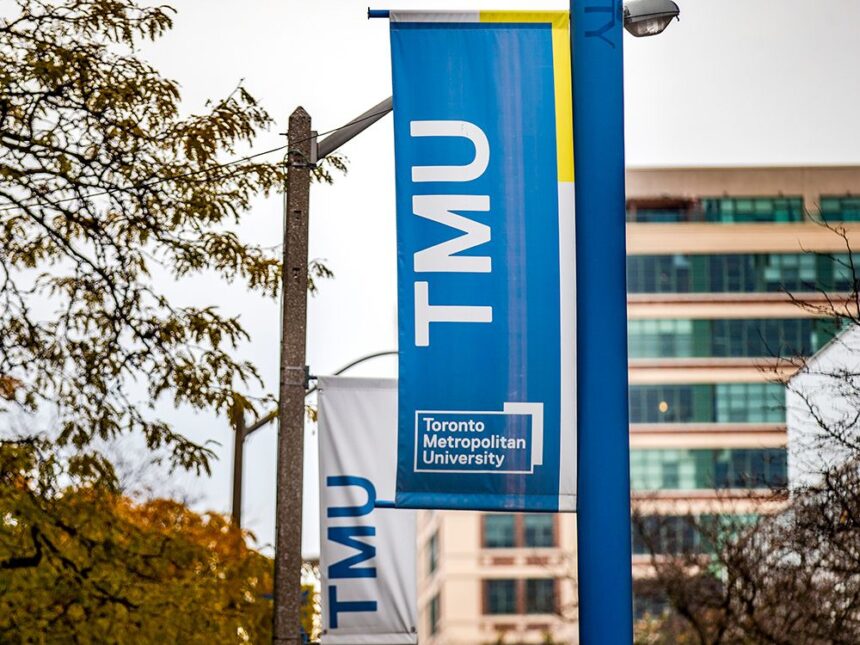The appointment of Dr. Kelly Train as interim dean of arts at Toronto Metropolitan University has ignited significant tension on campus, with Jewish student organizations calling for disciplinary action over her social media posts related to the Israel-Hamas conflict.
Hasbara Fellowship Canada, a prominent Jewish student advocacy group, has formally requested that TMU President Mohamed Lachemi take action against Train for what they describe as “antisemitic rhetoric” shared on her personal Facebook account. The organization has compiled a dossier of posts dating back to October 2023, which they claim violate the university’s own policies on discrimination.
“These posts go beyond legitimate criticism of Israeli policy and cross into dangerous territory that makes Jewish students feel unwelcome and unsafe,” said Daniel Koren, Executive Director of Hasbara Fellowship Canada, in an interview with CO24 News. “When academic leadership openly shares content that demonizes Jewish students for their identity, it creates a hostile learning environment.”
At the center of the controversy are Train’s posts that allegedly compare Israel’s military actions in Gaza to historical genocides and what Hasbara describes as “one-sided narratives” about the conflict. The group claims Train has shown a pattern of sharing content that delegitimizes Israel’s right to exist while failing to acknowledge the complex realities of the situation.
TMU’s administration has responded by noting that faculty members have the right to express personal views on social media platforms. A university spokesperson told CO24 Canada that “TMU is committed to creating an inclusive environment for all students while also respecting academic freedom and freedom of expression.”
This incident reflects broader tensions playing out across Canadian university campuses since the October 7 Hamas attack on Israel and the subsequent military response in Gaza. Post-secondary institutions have struggled to balance respect for diverse perspectives with concerns about rising antisemitism and Islamophobia.
Dr. Train, a sociology professor who has taught at TMU for over two decades, was named interim dean earlier this month. She has not publicly responded to the controversy, though supporters argue her posts represent legitimate criticism of Israeli government actions rather than antisemitism.
The situation has drawn attention from CO24 Politics analysts who note this case highlights the increasingly blurred lines between personal expression and professional responsibility for academic leaders in the digital age.
Jewish student leaders have expressed feeling marginalized on campus, with some reporting hesitation to identify themselves as Jewish in certain academic contexts. Meanwhile, pro-Palestinian student groups have defended Train’s right to express solidarity with Palestinians suffering in Gaza.
As TMU navigates this complex situation, the broader question emerges: in an era of intense polarization around the Israel-Palestine conflict, can universities maintain environments where all students feel safe while protecting free expression? The resolution of this case may set important precedents for academic institutions across Canada grappling with similar tensions.










